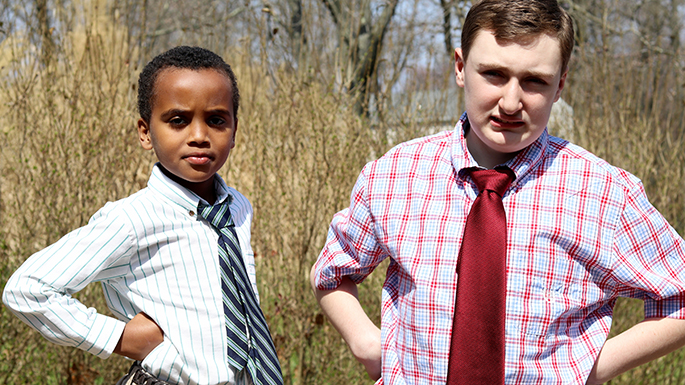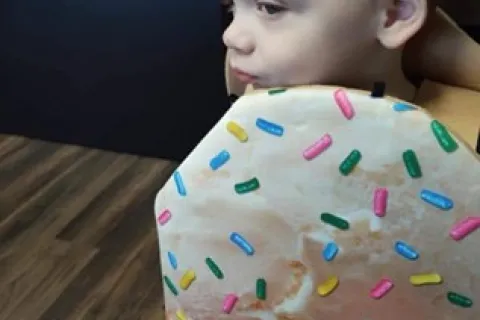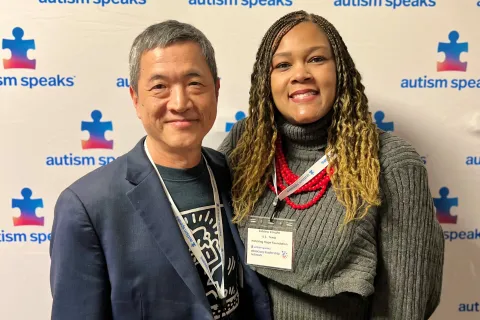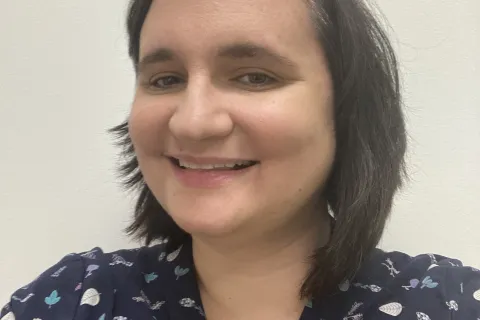Pointing is rude: A family's journey towards acceptance
This Q&A is with NFL Films producer and debut author Digger O’Brien. In his new book, "Pointing is Rude: One Father's Story of Autism, Adoption, and Acceptance," O'Brien writes about his family’s experience with autism, starting with his son’s early childhood diagnosis.
Can you tell me about your experience receiving a diagnosis for your son?
My son Frederick was diagnosed at 27 months old. I remember everything about that day. Driving in the rain. The height of the tables and chairs in the room. It was devastating, the worst day of our lives. But in a strange way it led to something that, in the long run, helped the healing process for my family.
What is something you've learned about life from being a father to a son on the autism spectrum?
It’s funny—instead of titling my book “Pointing Is Rude” I could have done a variation of that old series and called it “All I Really Need To Know I Learned From My Special Needs Son.” But I probably would have gotten sued! My son Frederick has taught me everything, or at least everything worthwhile. I've learned to laugh at situations because it’s better than crying. I’ve learned to be vulnerable, and to realize it’s ok to ask for help. I’ve learned to tune-out other people complaining about their problems, especially when those problems pale in comparison to having a son who will never live an independent life. And I’ve also learned that the pain—the heavy feeling in the chest which started the day my son was diagnosed—isn’t going away. And when I started realizing that, I was able to start living again. You also learn there’s a lot of help if you look for it—not just Autism Speaks but formal parent groups and informal things like Autism Daddy’s Facebook page or simply reaching out to friends and family. You have to find what you need.
You work in film production, what inspired you to write a book?
Back in 2006, I had been noodling with the idea of writing an article about my son, who was 5 at the time. Writing was always my forte—I had majored in English at the University of Notre Dame and thought about pursuing an MFA, and ended up at NFL Films because Steve Sabol always valued writing. At the time I was working on a show about the 1971 Dallas Cowboys. When I finished it, it felt like I had written a book, because those particular shows in our “America’s Game” series needed meticulous research and planning and structuring. So the article I was writing morphed into the book “Pointing Is Rude.” It’s not a long book, just a little over 200 pages. I began writing in 2006 so if you do the math I averaged less than half a page per week. But as anyone who is on this site knows, we have other things on our plate. Just happy I finished it.
What do you wish other people knew about people with autism?
I wish people knew there are different shades of autism and different levels of it. Autism Speaks has done incredible work in raising awareness but people still lack understanding. People think it’s a “one-size-fits-all” label but it’s not. In the book I mention that people with cancer aren’t referred to as “canceristic” and people with Cystic Fibrosis aren’t labeled “fibrostic”—therefore, no one should call my son “autistic.” In fact, I have a pat answer when that happens: if someone asks me if my son is autistic I answer “No, he’s not autistic—he’s Frederick.” And then I drop the mic and walk away…








